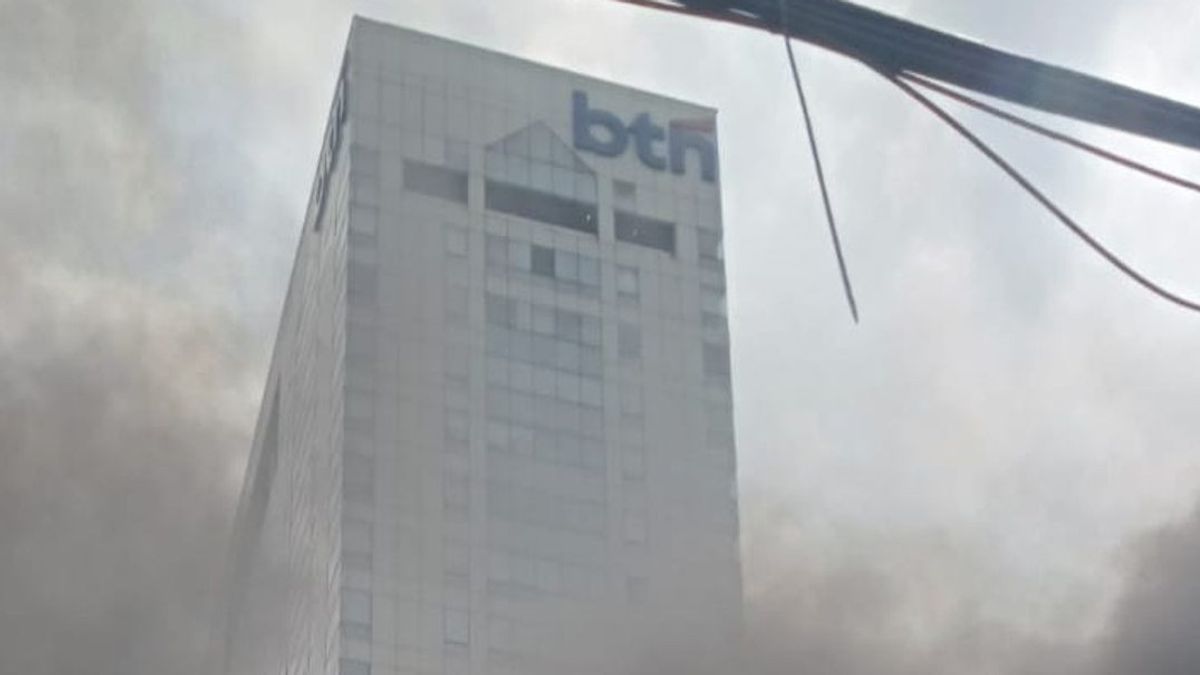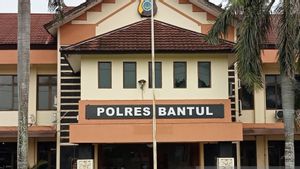JAKARTA The case of the alleged loss of BTN customer money has returned to the public's attention. The lack of financial literacy makes people easily tempted by the lure of big interest. However, the bank must also be responsible for this case.
At the end of April 2024, a number of BTN customers burned tires in front of the BTN Harmoni Bank Building, Jakarta. The crowd also boycotted access to the BTN Building with a blaze on Tuesday (30/4/2024) afternoon.
The demonstration was carried out demanding that their funds be lost after being deceived by former BTN employees.
It is known that the demonstrators were victims of fraud by former BTN employees, namely ASW and SCP. The two individuals have been found guilty by Polda Metro Jaya since February 6, 2023, related to criminal acts of fraud and embezzlement and forgery of letters.
The case of a number of customers claiming their funds were lost began when they placed funds in BTN through the company's former employees.
BTN's attorney, Roni, explained that the opening of accounts by former BTN employees was not carried out in accordance with applicable procedures. Customers are even promised deposit products with interest of 10 percent per month.
After opening the customer's account, the former BTN employee did not provide official documents as usual, such as savings books or ATM cards, so it was strongly suspected that all the customer data collected was used by these individuals, including sending customer funds to ex-employee personal accounts.
PT Bank Tabungan Negara (Persero) Tbk or BTN confirmed that banks have never provided deposit products with a interest rate of 10 percent per month or 120 percent per year.
"I have to underline that there are no savings or savings products whose interest is 10 percent per month. That is the first thing we must understand together to be used as education to the public," said Director of Operations and Customer Experience BTN, Hakim Putratama at the Head Office of BTN Jakarta, quoted from Antara.
Based on information on the BTN website page, interest rates for rupiah retail BTN deposit products offered to customers, ranging from 2.35 percent to 3.40 percent per year according to the set balance strata. The amount of deposit interest rates is effective from 9 June 2023.
#banturekapisuNasabah Bank BTN kehilangan uang puluhan milyar di dalam rekening. Sudah diupayakan agak uang kembali dengan lapor ke pihak berwajib dan OJK, tetapi tidak ada penanganan sampai saat ini. Kasus sudah berjalan selama dua tahun. https://t.co/2itpJ2PZ2o
— Isu Soksial (@IsuSoksial) May 1, 2024
#banturekapisuNasabah Bank BTN kehilangan uang puluhan milyar di dalam rekening. Sudah diupayakan agak uang kembali dengan lapor ke pihak berwajib dan OJK, tetapi tidak ada penanganan sampai saat ini. Kasus sudah berjalan selama dua tahun. https://t.co/2itpJ2PZ2o
Banking Observer and Payment System Practitioner, Arianto Muditomo opened his voice regarding the fraud case committed by employees of Bank BTN with the initials SCP and ASW.
According to Arianto, so far the steps taken by Bank BTN have been appropriate by thoroughly investigating to find out the chronology of events, the modus operandi, and the parties involved.
"Then take administrative action against the perpetrators and because the transaction does not involve products, procedures, and bank policies, BTN asks the victim to follow up with the legal process," he said when contacted by VOI, Thursday, May 2.
Arianto assessed that fraud cases by bank staff by promising high interest rates are a serious violation of customer trust and can damage the bank's reputation.
"Therefore, it is important for the management of Bank BTN to take firm and proactive steps to handle the case, protect customers, and prevent future fraud," continued Arianto.
Arianto added that the important thing to do then is prevent future fraud by taking several steps, among others, by strengthening the bank's internal control system.
In addition, Arianto also emphasized the importance of increasing customer financial literacy so that the same thing does not happen again.
"Then increase education and financial literacy to customers about fraudulent modes in banking and finally cooperate with relevant authorities to prevent and eradicate fraud in the financial sector," he further said.
The case of the loss of customer money in a bank is not the only time this has happened. Similar to what happened in BTN, in January an employee of one of the state-owned banks with the initials SDS (39) is suspected of having embezzled his customer's money and was arrested by the West Sumatra Police Ditreskrimsus ranks.
The suspect, who serves as an analyst at the bank, acted with the mode of counterfeiting Government Securities (SUN) to six of his customers. They were persuaded by the suspect to invest with high interest on SUN. Even though SUN has never been issued by the state.
Another crime mode in the form of document falsification that led to the burglary of customer funds occurred at Bank Syariah Mandiri (BSM) for the 2014-2015 period involving two employees with a loss value of IDR 50 billion. Two employees are Manager of Marketing BSM Gatot Subroto Branch and Trade Specialist Officer of BSM.
Not to forget, the phenomenal case of breaking into customer accounts which later developed as a money laundering crime (TPPU). Inong Malinda or Melinda Dee, former Relationship Manager of Citibank at the Citibank Landmark branch office, South Jakarta, became the culprit of this case.
Banking crimes that occur in Indonesia often involve people in the circles themselves. The modes vary, ranging from entering data or identities without permission to the lure of large interest which results in the loss of customer savings funds.
Citing a number of sources, such crimes are called white kerah' crimes. The term white kerah' crime was first put forward by a criminologist from the United States, Edwin H. Sutherland in 1939.
Sutherland defines theWhite Collar Crime as a crime committed by a person of respectability and high social status in the course of their occupation.
He believes that white kerah'' crime is a crime committed by someone who is very honorable and has a high social status in his work. This crime can occur within companies, professionals, trade, and political life.
There needs to be an increase in the level of professionalism of banking industry players in carrying out their obligations and duties with full responsibility and increasing self-confidence for the wider community.
Chairman of the Indonesian Telematics Society (Mastel) Sarwoto Atmosutarno said banking crimes occurred due to external and internal factors that played an important role in it.
"The internal banking crime factor does come from the human himself," said Sarwoto on June 8, 2023.
The involvement of people in banking is part of the risks that must be overcome. According to Sarwoto, this risk can be reduced if mitigation is carried out from each bank itself.
"Of course there must be mitigation steps for both the perpetrators and the banking system. So, it is necessary to do a repeat system audit," he said.
So far, he said, there have been many regulations that protect and prevent banking crimes. There is even a response that must be taken in the event of an alarm of banking crime.
"So again, the rules already exist from BI and OJK and it's just a matter of how to solve people's problems and technology systems in overcoming banking crimes," Sarwoto explained.
Meanwhile, Criminal Law expert from Parahyangan University, Agustinus Pohan, added that the crime of white collaring in banks so far has only been borne by the perpetrators.
SEE ALSO:
"Even though the bank should take responsibility, at least civilly related to the victim's loss," he said.
If the bank is responsible, said Agustinus, the bank will force better employee recruitment and coaching.
"In 2026 when the national Criminal Code takes effect, criminal responsibility can also be imposed on banks as corporations," he concluded.
The English, Chinese, Japanese, Arabic, and French versions are automatically generated by the AI. So there may still be inaccuracies in translating, please always see Indonesian as our main language. (system supported by DigitalSiber.id)














